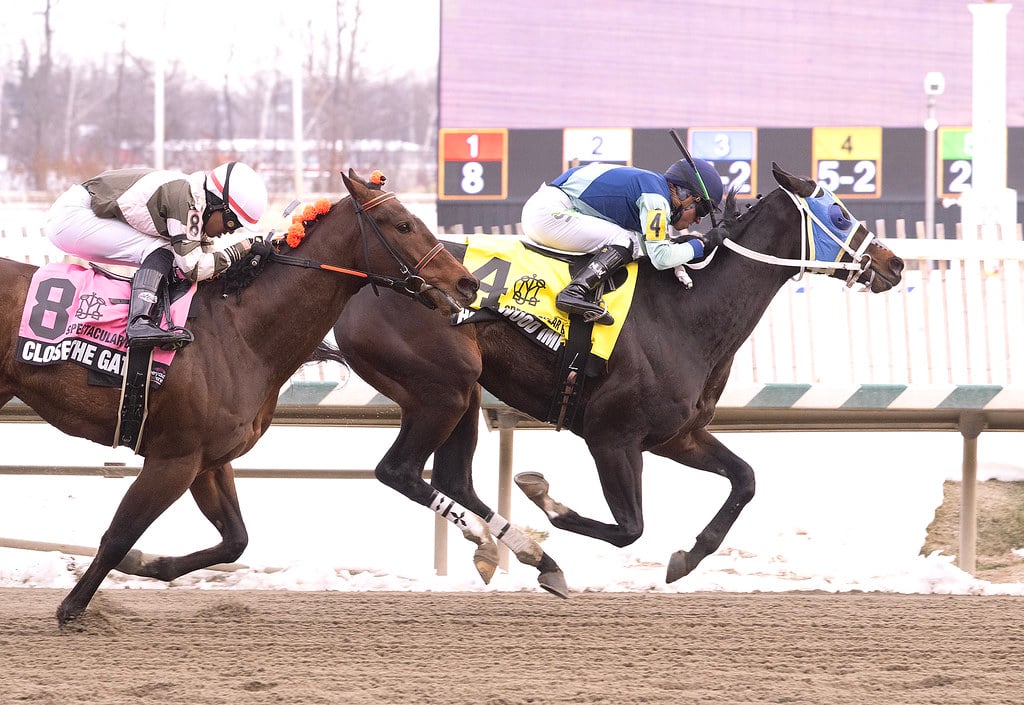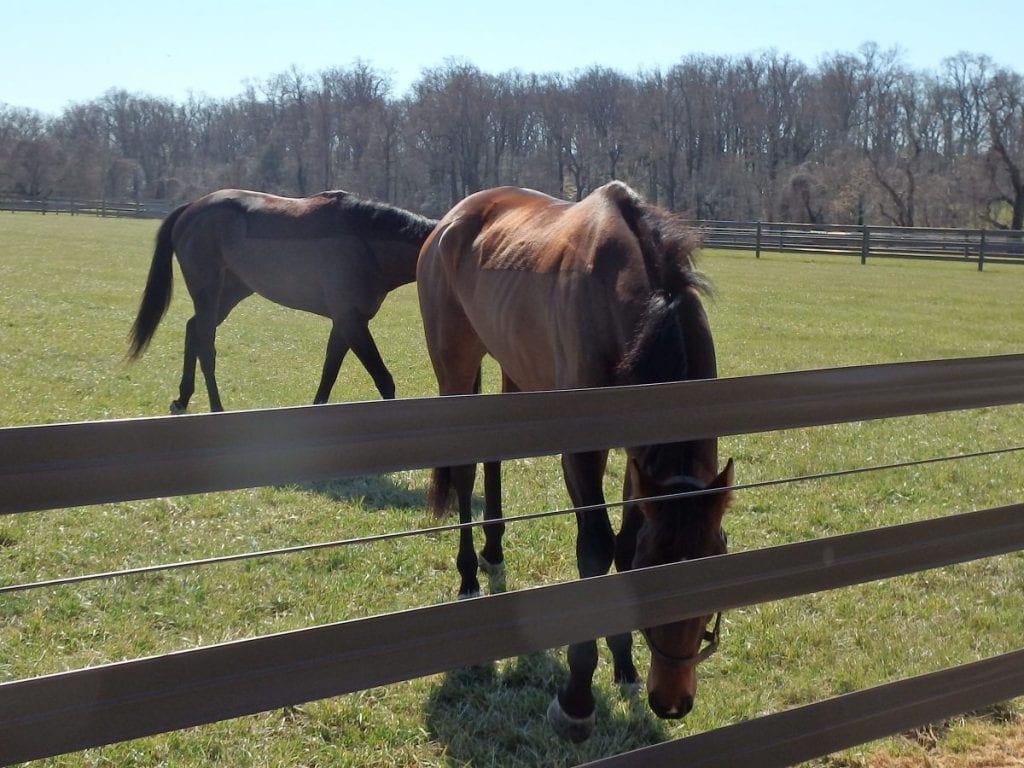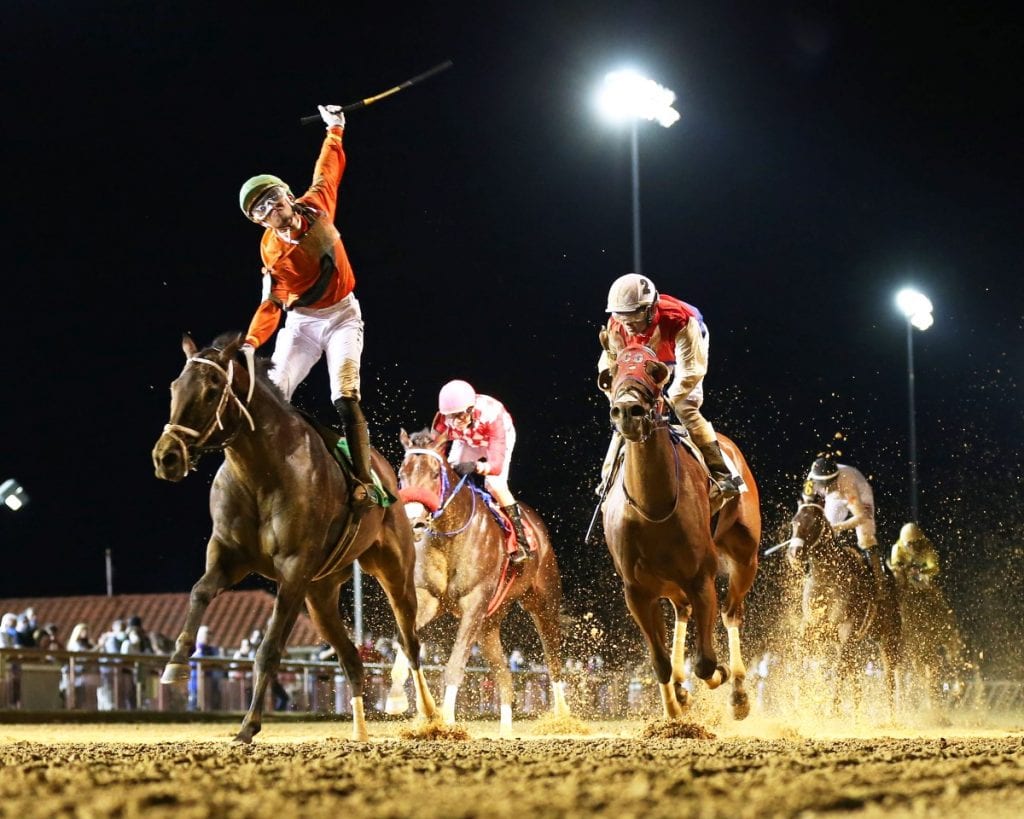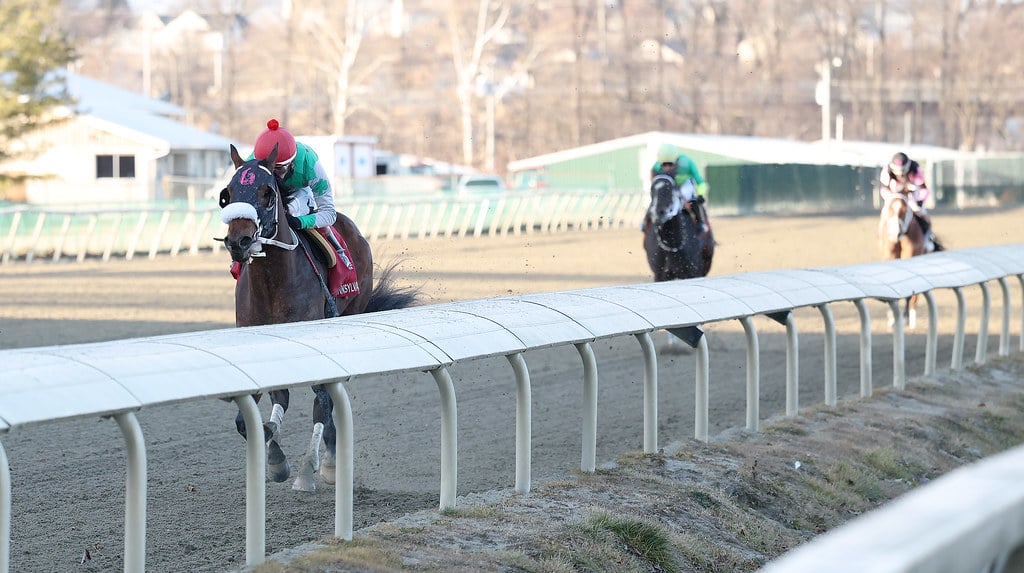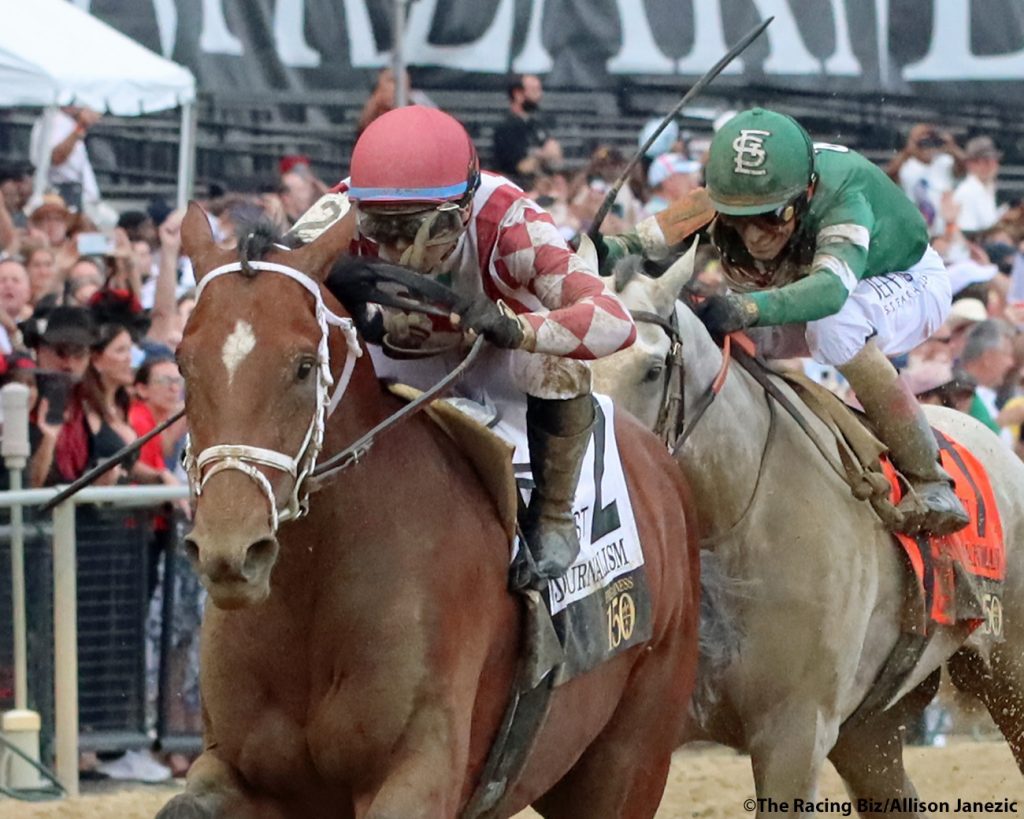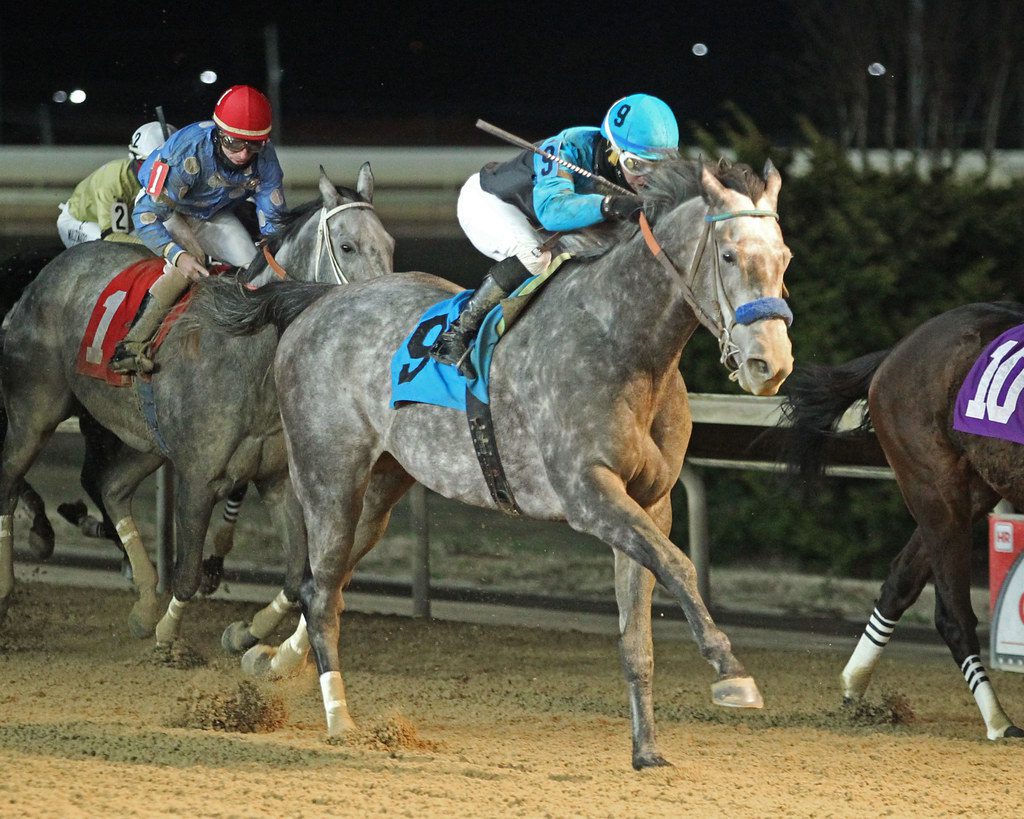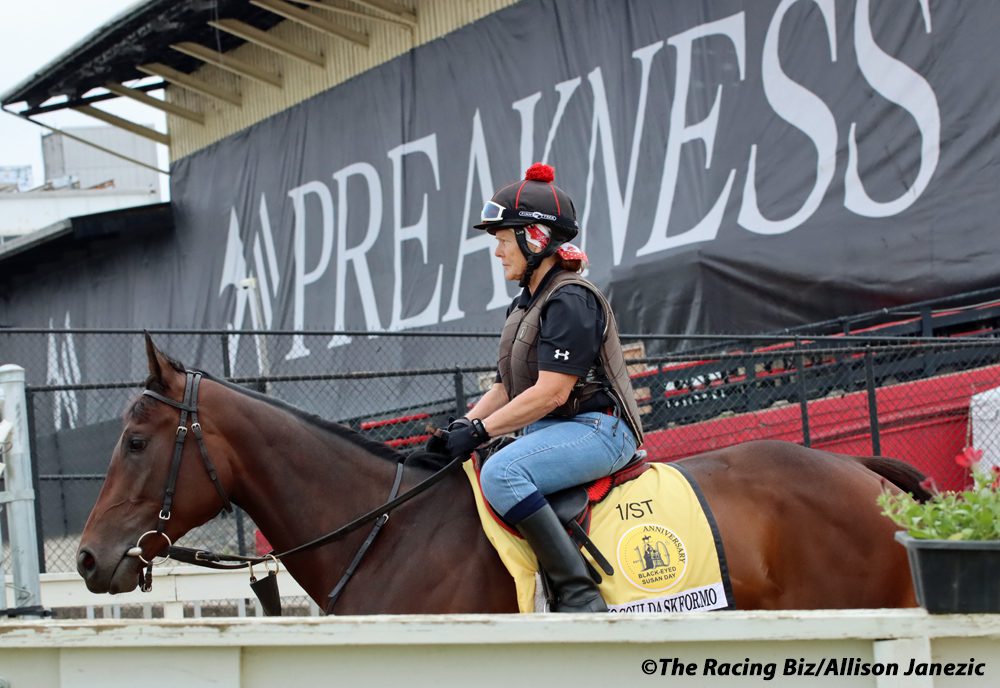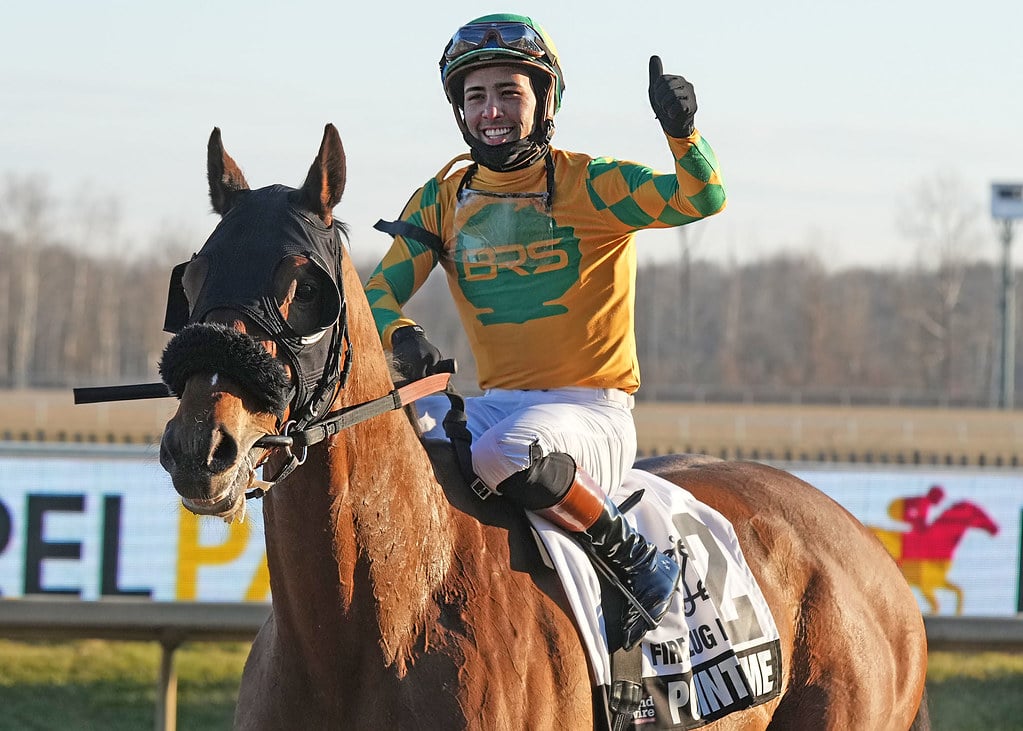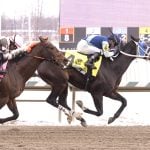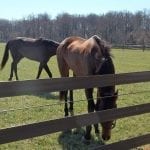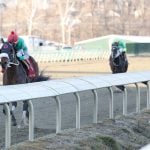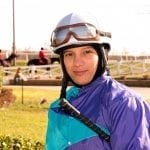FOR VIRGINIA HORSEMEN, OPTIMISM DESPITE CLOUDS
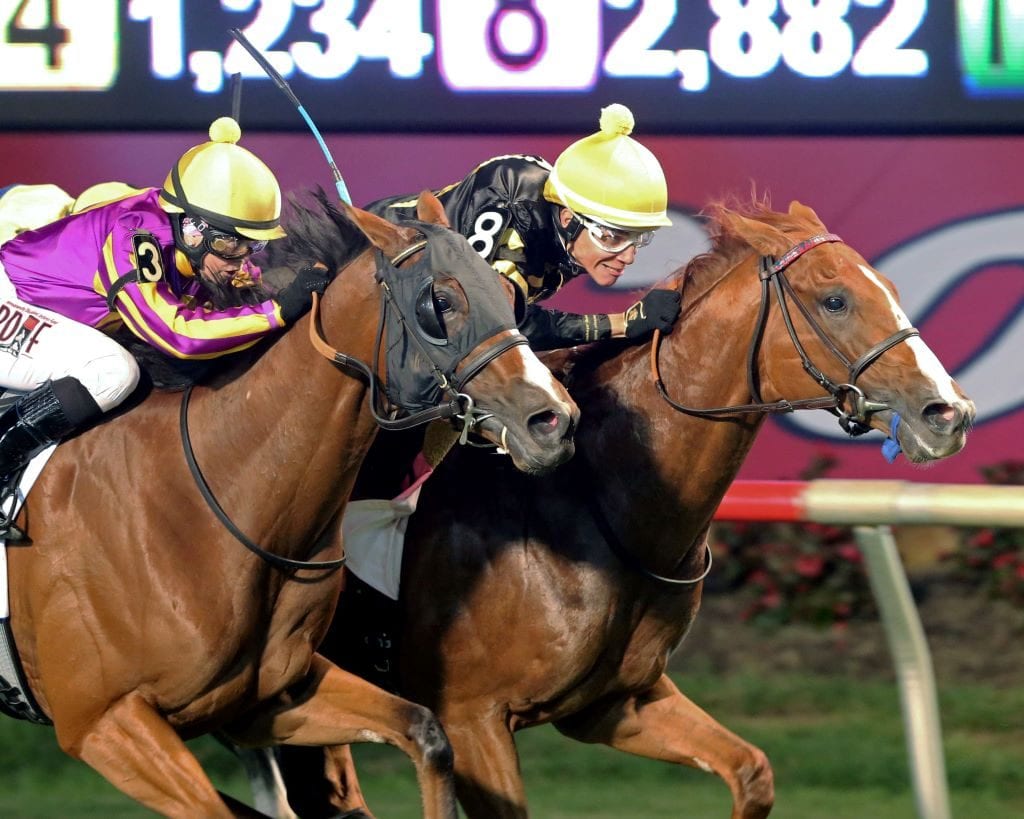
Cancellation of the Colonial Downs season came Friday, August 14 after several jockeys and others tested positive for Covid-19. Now Virginia racing officials are dealing with the impacts of that decision.
A measured exodus is underway from the backstretch of Colonial Downs, where transportation and quarantining issues surfaced quickly upon the announcement of the meet’s terminus. On Monday morning, many must have looked up at a clear, cooling sky and shaken their heads.
“Everybody is moving out. The problem is, where do they move to?” said Frank Petramalo, executive director of the Virginia Horsemen’s Benevolent and Protective Association (HBPA). “It’s a financial struggle to many of those who came, and we only ran about a third of the meet. Getting here is not cheap.”
With many tracks requiring a negative Covid-19 test and a 14-day quarantine for those who’d been at Colonial, many left on Colonial’s backstretch, especially smaller outfits, have been handed a financial burden to go along with the uncertainty of racing in the Covid era.
And for good measure were multiple natural events that left only limited windows to show accomplishment and, more importantly, earn purse money before the Covid-19 positives finally punched a knockout blow to Colonial 2020.
All the weather that went right in 2019 for Colonial’s return to racing, went wrong in 2020. Last year, off-day temperatures of 90-plus humid degrees would be brushed aside by cold fronts that arrived as the race week began. Not a single race was pulled off the turf in 2019.
About 30 or so people surrounding the jockey’s room were tested by Colonial after leading rider Trevor McCarthy came up positive, and others sought testing on their own. After “several” positives, Colonial’s jockey colony dwindled enough to force the cessation.
The opening of the 2020 meet was greeted by the hottest day of the year (by heat index) forcing a postponement of opening day. The meet never really caught up. Only one of the six cards run, July 29, was run as originally scheduled and under typical procedures.
Racing officials were forced to delay post times for heat, hurry post times for approaching rain, and cancel racing mid-card when a well-placed lightning strike caused a power outage. One day of racing was pulled off the turf, not taken lightly at any track but especially at Colonial.
- Laurel Park picks and ponderings: February 5, 2026
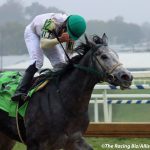 We provide full-card picks and analysis for this afternoon’s races at Laurel Park.
We provide full-card picks and analysis for this afternoon’s races at Laurel Park.
These interruptions have created a burden for many horsemen that had come back this season with more in their stable after such a successful 2019 renewal. Petramalo explained that the VHPBA has extended the incentive programs to assist in the exodus. For example, owners of horses stabled on the grounds that did not get a race due to cancellation or a race not filling have been granted incentives to assist in shipping out.
“If you want them to come back next year, we should support them now,” commented Virginia trainer Gary Williams who won a race with Hagley’s Hero on Colonial’s grand opening day in 1997 and has participated in every Colonial season since. “If there is money in the kitty, why not help them? Give it to the horsemen that came to run and didn’t get a chance to run through no fault of their own.”
Karen Dennehy Godsey experienced one of the few triumphant moments the weather allowed when What the Beep won the Camptown Stakes on that good race day.
“Both of these horses I legged up for the meet,” explained Godsey of What the Beep and stablemate Braxton. “They have lineage that really steps up for that track. They are not the same caliber of horses when they go to other tracks.”
Located in Ashland, not far from where Secretariat was foaled, Godsey’s Eagle Point farm pins much of its annual schedule toward the Colonial meet. Eagle Point, like many Virginia outfits, will find salvation in the Virginia Certified Residency program.
“Through the residency program, I have had some of these since they first had a saddle put on them and now, I see them go from the overnights to the van,” shrugged Godsey. “I’m lucky. I get to come home and have plenty of work to do, but it still stinks. I have a lot of Virginia-based owners. These owners are geared up for this meet, and they’re struggling where to run next.”
Since the news, Godsey has been on the phone “commiserating and coordinating” with owners and other trainers. They closure is an added burden to Eagle Point, which was in the middle of renovating its barns in Ashland, some 30 minutes away from Colonial. Godsey like many who support the Colonial meet, hope the closure doesn’t tarnish Colonial’s reputation out of state.
“The abrupt ending has left a bad taste in the mouth, but I hope they don’t hold it against Colonial,” she commented.
Petramalo has been working with stranded backstretchers and has issued funding for travel in dozens of cases.
For Virginia horsemen, an instrument that significantly lowers the cancellation impact, the Virginia Certified Residency program, ironically was born in the absence of Virginia live racing.
- Historic cold blast has horsemen hoping for the best
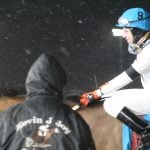 A blast of cold that canceled Charles Town’s entire week of racing — and could go on longer — has horsemen making the best of things.
A blast of cold that canceled Charles Town’s entire week of racing — and could go on longer — has horsemen making the best of things.
If ever there was a state that knew how to succeed in Thoroughbred racing without, you know, live racing, it may well be Virginia. Virginia was a breeding power even without having a racetrack; even Secretariat wasn’t fast enough to move the legislature towards on-track pari-mutuel of any sort until 1989 after a statewide referendum passed.
When track ownership and Virginia horsemen separated after the 2013 season, horsemen, breeders, harness horse interests, and steeplechase racers formed the Virginia Equine Alliance. It crafted the six-month certified residency program to keep Virginia barns active.
“It creates a year-round business,” explained Debbie Easter. “It’s the missing piece here in Virginia. One of the things we realized from old Colonial is that 30 days of racing doesn’t create year-round opportunities. The certification program is going to keep these horsemen going.”
Under the certified program, horses that complete a six-month residency period in Virginia prior to the completion of their two-year-old year earn their owners a 25% bonus each time they win anywhere in the Mid-Atlantic.
Trainer Patrick Neusch had targeted several maidens for the Colonial meet. He has had exceptional performances at Colonial, once saddling four straight winners to start a meet. The impact of Colonial not racing for him means “more travel, less turf.”
On the plus side, he’ll have about two dozen horses in his Braeburn Training Center outside of Charlottesville, drawn there by the residency program. Before the advent of the program, Neusch’s horse population had dwindled to a small handful.
Covid brought 2020 Colonial racing to a whoa. Fortunately, there a few means to make it go again.
LATEST NEWS



